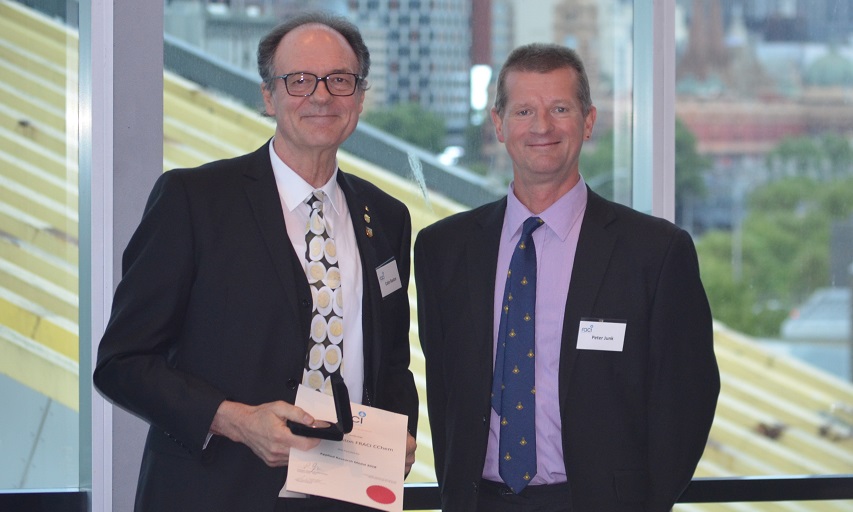
Prominent Flinders Institute for Nanoscale Science and Technology researcher Professor Colin Raston AO FAA has been acknowledged with the Applied Research Award from the Royal Australian Chemical Institute.
The achievement award for Professor Raston’s vortex fluidic device, which uses an environmentally friendly chemical synthesis to performs revolutionary processes on complex molecules, such as accurate slicing of carbon nanotubes, was for “significant contributions to the development of, or innovation through, applied research, or in industry fields”.
After winning the 2015 Ig Nobel Prize in Chemistry, for ‘unboiling’ egg protein, the vortex fluidic device has been used in the Raston Lab and other laboratories around the world to:
- precisely slice carbon nanotubes in the absence of chemical stabilisers (DOI: 10.1038/srep22865)
- fabricate non-toxic carbon dots
- synthesise complex molecules in a single pass through the device
- separating proteins
- accelerating enzymatic reactions.
“His work on thin film microfluidics also contributes to fundamental discovery by imagining the revolutionary impact on chemical manufacturing if chemical reactions could occur with extremely short diffusion path lengths (beyond diffusion control),” the citation says.
“As Professor of Clean Technology at Flinders University, Colin hopes to help steer the planet onto a sustainable trajectory. “
Professor Raston is a Fellow of the RACI, the Royal Society of Chemistry (UK) and the Australian Academy of Science, and contributes his expertise on the Advisory Board for Green Chemistry and the Board for Scientific Reports. Colin also served as President of the RACI in 1997.
Recent 2018 publications include High-Shear-Imparted Tunable Fluorescence in Polyethylenimines, Laser irradiated vortex fluidic mediated synthesis of luminescent carbon nanodots under continuous flow, Controlling the growth of fullerene C60 cones under continuous flow and Organic oxidations promoted in vortex driven thin films under continuous flow
Meanwhile, University of Melbourne researcher and academic Professor Amanda Ellis, who also has academic status at Flinders University, won the RACI Margaret Sheil Leadership Award for leadership of women in science.
As Amanda Shiel lecturer, Professor Ellis would like to see equity and equality in science be “recognised as a norm rather than a metric”.
Her research is pioneering the programming of strands of DNA to induce them to assemble as tubes, boxes, sheets and crystals.
Recent publications include Flinders University College of Science and Engineering research collaborations published in various Royal Society of Chemistry journals and Aquaculture Research.
Last year, she worked on several PLOS One and notable papers led by Flinders University including: Laying Waste to Mercury: Inexpensive Sorbents Made from Sulfur and Recycled Cooking Oils and Adsorption and Desorption of Single-Stranded DNA from Single-Walled Carbon Nanotubes

